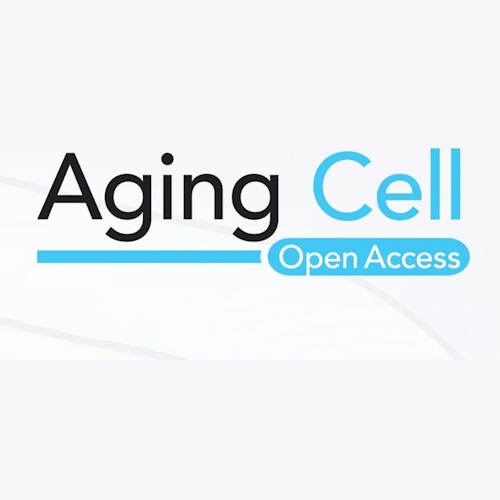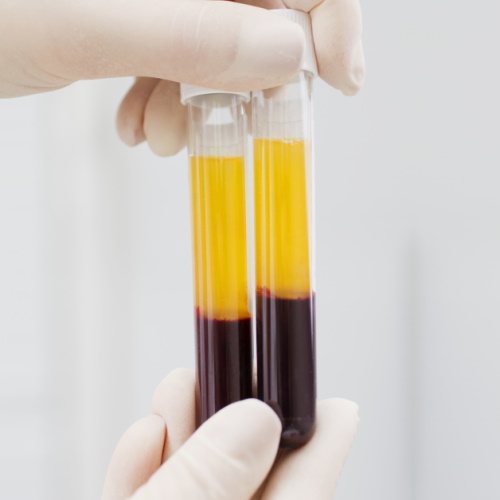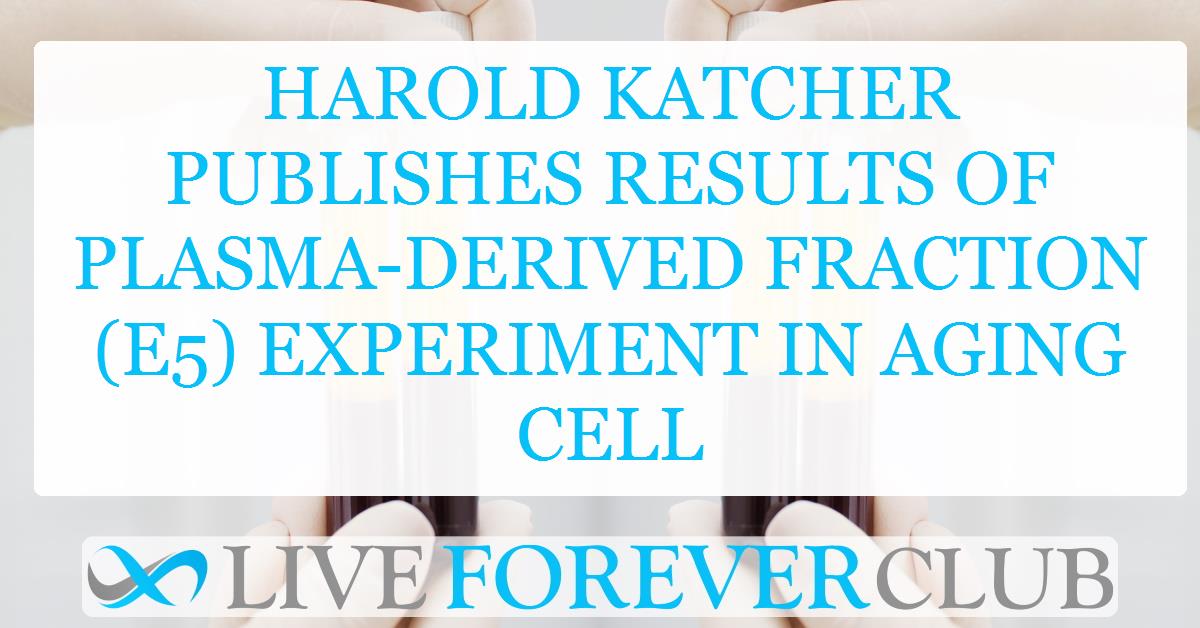Ageing is a natural part of life that brings with it a number of challenges, from declining physical ability to increased vulnerability to illnesses. In recent years, scientists have been focused on finding treatments to slow ageing and improve the quality of life. A fascinating new study has shed light on the potential of E5 treatment—a plasma-derived exosome—to extend lifespan and enhance health in ageing rats. Let's explore what the researchers found and why it might be significant for future ageing therapies.
Challenges of Ageing
Ageing is characterised by a gradual decline in the body's functions, which eventually leads to vulnerability to diseases such as dementia, heart conditions, and cancer. This decline is largely due to changes in the body’s cells and tissues, which accumulate damage over time. As people age, these changes often result in chronic inflammation, oxidative stress, and general tissue dysfunction.
The question that has driven scientists for decades is: how can we mitigate the impacts of ageing? A growing body of research has focused on bioactive substances that may rejuvenate ageing tissues and improve overall health. Among these, E5—a plasma-derived exosome—has shown promising results in extending health and lifespan.
E5 Treatment
This study examined the effects of E5 treatment in old Sprague Dawley (SD) rats. The researchers took 24-month-old rats (roughly equivalent to 70 years old in human terms) and divided them into two groups. One group received the E5 treatment, while the other did not (serving as the control). Over the course of 400 days, the researchers assessed various aspects of the rats' health, including body weight, grip strength, inflammatory markers, and organ health.
E5 treatment involved injecting plasma-derived exosomes into the rats. These exosomes are small vesicles that carry proteins, lipids, and other biomolecules between cells, essentially acting as messengers that can help regulate biological processes. The E5 exosomes were derived from young porcine plasma and processed to contain specific properties aimed at rejuvenating the ageing cells.
Improved Health and Lifespan
The results of the study were impressive. The E5 treatment demonstrated several positive effects on the health-span and lifespan of the aged rats. Here are the main findings:
Enhanced Grip Strength
One of the first indicators of improved health was the enhancement in grip strength among the E5-treated rats. Muscle function and coordination tend to decline with age, and this is often measured by assessing grip strength. In this study, the treated rats experienced a 2-3 fold increase in muscle strength after 150 days of treatment compared to the control group. This suggests that E5 may help restore muscle function and coordination in ageing individuals.
Reduction in Inflammatory Markers
Inflammation is a key factor in many age-related diseases. As people age, their bodies often show higher levels of pro-inflammatory markers like TNF-α and IL-6, leading to a phenomenon known as "inflammaging." The study revealed that E5 treatment significantly reduced levels of TNF-α and IL-6 in the treated rats. This reduction in chronic inflammation could mean a lower risk of developing conditions like arthritis, cardiovascular disease, and even some cancers.
Lower Oxidative Stress
Oxidative stress is another major contributor to ageing. It occurs when there is an imbalance between harmful free radicals and the body’s ability to neutralise them with antioxidants. The study showed that the E5-treated rats had significantly increased levels of key antioxidants like superoxide dismutase (SOD) and glutathione (GSH), while levels of malondialdehyde (MDA), a marker of lipid peroxidation, were reduced. This points to an enhanced antioxidant defense in the treated group, protecting their cells from damage and contributing to healthier ageing.
Improved Vital Organ Health
The study also looked at the health of key organs, including the liver, kidneys, brain, and heart. The E5-treated rats exhibited healthier organs with reduced signs of degeneration compared to the control group. For example, liver function markers such as SGPT and SGOT were significantly lower in the treated group, indicating better overall liver health. The kidneys also showed reduced levels of blood urea nitrogen (BUN), suggesting improved filtration and function.
Longer Lifespan
Perhaps the most striking finding was the impact on lifespan. The E5-treated rats lived significantly longer than their untreated counterparts. While the control group had an average lifespan of 37 months, the treated rats lived up to 40.67 months on average, with some surviving up to 48 months—a remarkable extension in rat terms. This extended lifespan highlights the profound impact that E5 treatment could potentially have on delaying ageing and promoting longevity.
Science Behind E5
Exosomes like E5 are small, cell-derived vesicles that facilitate communication between cells. They carry important proteins, lipids, and genetic materials, and they have been shown to play a role in reducing inflammation and oxidative stress. In this study, E5 exosomes were used to deliver these beneficial molecules directly to ageing cells, effectively "reprogramming" them to function in a more youthful manner.
Comparison with Other Anti-Ageing Therapies
There are several approaches to anti-ageing therapies currently being explored, from caloric restriction and rapamycin to young blood transfusions. Rapamycin, for instance, has shown promise in extending lifespan by inhibiting the mTOR pathway, which is a key regulator of ageing. However, rapamycin comes with significant side effects, such as impaired wound healing and increased risk of infections.
Compared to these therapies, E5 appears to have fewer adverse effects while providing comparable, if not superior, benefits. The absence of severe side effects in the E5-treated rats suggests that plasma-derived exosomes could offer a safer alternative for promoting longevity.
Implications for Human Ageing
While this study focused on rats, the implications for human health are intriguing. Ageing is a complex process that affects multiple body systems, and finding a treatment that can effectively improve both health-span and lifespan is the ultimate goal of gerontology. If E5 or similar exosome-based treatments can be safely adapted for humans, they could potentially delay the onset of age-related diseases, enhance quality of life, and even extend lifespan.
Limitations and Future Research
It is important to note that while the results are promising, this study was conducted on rats, and there are significant differences between rat and human biology. More research is needed to determine if E5 can have the same effects in humans. Future studies will likely focus on understanding the precise mechanisms by which exosomes deliver their anti-ageing effects and whether similar outcomes can be achieved in larger animals or humans.
Additionally, the study raises interesting questions about the potential for different sources of plasma. Could plasma from younger humans have similar rejuvenating effects? Or would plasma from individuals with certain genetic traits be more effective? These are areas that researchers are eager to explore.
Conclusion
The findings from this study suggest that E5, a plasma-derived exosome treatment, has the potential to significantly improve health-span and extend lifespan in ageing rats. By enhancing muscle function, reducing inflammation, increasing antioxidant defenses, and promoting better organ health, E5 represents a promising step forward in the search for effective anti-ageing therapies.
The idea that ageing can be delayed, or even partially reversed, is a hopeful one. While there is still a long way to go before treatments like E5 can be widely used in humans, this study provides an exciting glimpse into what might be possible. With continued research and development, exosome-based therapies could one day transform how we age, allowing us to live healthier, longer lives.
The study of ageing is rapidly evolving, and treatments like E5 are at the forefront of this scientific revolution. For now, the best way to support healthy ageing is through well-established lifestyle choices: maintaining a balanced diet, exercising regularly, and avoiding chronic stress. However, the future may hold advanced treatments that can amplify these benefits and help us age more gracefully.
For now, E5 offers hope—hope that ageing doesn't have to mean inevitable decline and that science may one day help us maintain vitality far longer than we ever imagined possible.
The study is published in the journal Aging Cell. and was led by Harold L. Katcher from Yuvan Research Pvt Ltd.








